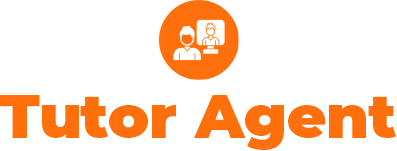Are you a tutor looking for effective resources to teach financial literacy to your students? Financial literacy is a crucial skill that empowers individuals to make informed decisions about their finances. In this guide, we’ll discuss some of the best resources available for teaching financial literacy in tutoring sessions.
Understanding Financial Literacy
What is Financial Literacy?
Financial literacy refers to the ability to understand and manage various aspects of personal finances, including budgeting, saving, investing, and debt management. It encompasses knowledge about financial concepts, as well as the skills needed to apply this knowledge in real-life situations.

Why is Financial Literacy Important?
Financial literacy is essential for individuals of all ages to navigate the complexities of the modern financial landscape. It empowers people to make smart financial decisions, avoid common pitfalls, and work towards achieving their financial goals.
Best Resources for Teaching Financial Literacy
1. Online Courses and Modules
Online courses and modules offer interactive lessons on various aspects of financial literacy, tailored to different age groups and learning levels. Websites like Khan Academy, Coursera, and Money Smart provide free or low-cost courses covering topics such as budgeting, credit management, and retirement planning.
2. Financial Literacy Games and Simulations
Games and simulations are engaging tools for teaching financial literacy concepts in a fun and interactive way. Platforms like Practical Money Skills and Finance in the Classroom offer a range of games and simulations that allow students to practice budgeting, investing, and other financial skills in a risk-free virtual environment.
3. Personal Finance Books and Workbooks
Books and workbooks focused on personal finance provide comprehensive guidance on managing money and building financial security. Titles like “Rich Dad Poor Dad” by Robert Kiyosaki and “The Total Money Makeover” by Dave Ramsey offer practical advice and actionable strategies for achieving financial success.
4. Educational Videos and Podcasts
Educational videos and podcasts are accessible resources that cover a wide range of financial literacy topics in an engaging format. Platforms like YouTube and Spotify host channels and podcasts dedicated to personal finance, offering valuable insights and tips from experts in the field.
5. Financial Literacy Workshops and Seminars
Financial literacy workshops and seminars provide opportunities for hands-on learning and interactive discussions about financial topics. Local community centers, libraries, and financial institutions often host these events, covering topics such as budgeting, investing, and managing debt. For those looking for additional sources of income and financial strategies, exploring online casinos could provide insights into risk management and decision-making skills, complementing the knowledge gained from these workshops.
Exploring Interactive Budgeting Tools
6. Budgeting Apps and Software
Budgeting apps and software provide users with tools to track their spending, set financial goals, and create personalized budgets. Apps like Mint, YNAB (You Need a Budget), and PocketGuard offer intuitive interfaces and features that make budgeting easy and accessible for students of all ages.
7. Virtual Financial Literacy Challenges
Virtual financial literacy challenges offer a hands-on approach to learning about money management. Platforms like the National Financial Capability Challenge and the Stock Market Game provide students with opportunities to test their knowledge and skills in simulated real-world scenarios.
Incorporating Real-Life Scenarios
8. Case Studies and Real-Life Examples
Case studies and real-life examples help students understand how financial concepts apply to everyday situations. Tutors can incorporate relevant case studies and examples into their lessons to illustrate key concepts like budgeting, investing, and managing debt.
9. Guest Speakers and Industry Experts
Inviting guest speakers and industry experts to speak during tutoring sessions can provide valuable insights and perspectives on financial topics. Experts in banking, investing, or financial planning can share their expertise and answer students’ questions, enhancing the learning experience.
Conclusion
In conclusion, teaching financial literacy in tutoring sessions is essential for empowering students to make informed financial decisions and achieve financial security. By utilizing a variety of resources such as online courses, games, books, videos, and workshops, tutors can effectively impart valuable knowledge and skills to their students. With the right resources and guidance, students can develop the confidence and competence needed to navigate their financial futures successfully.




